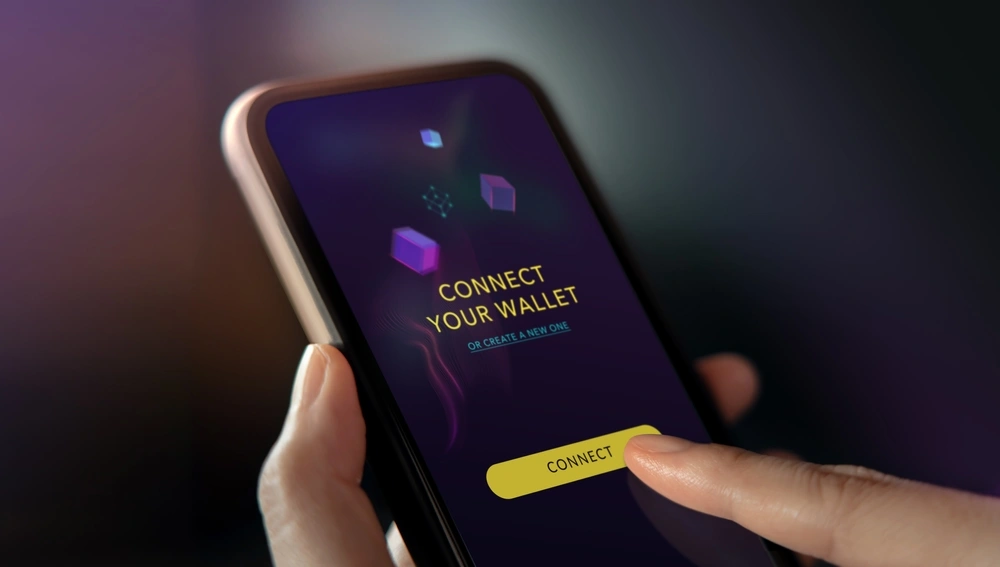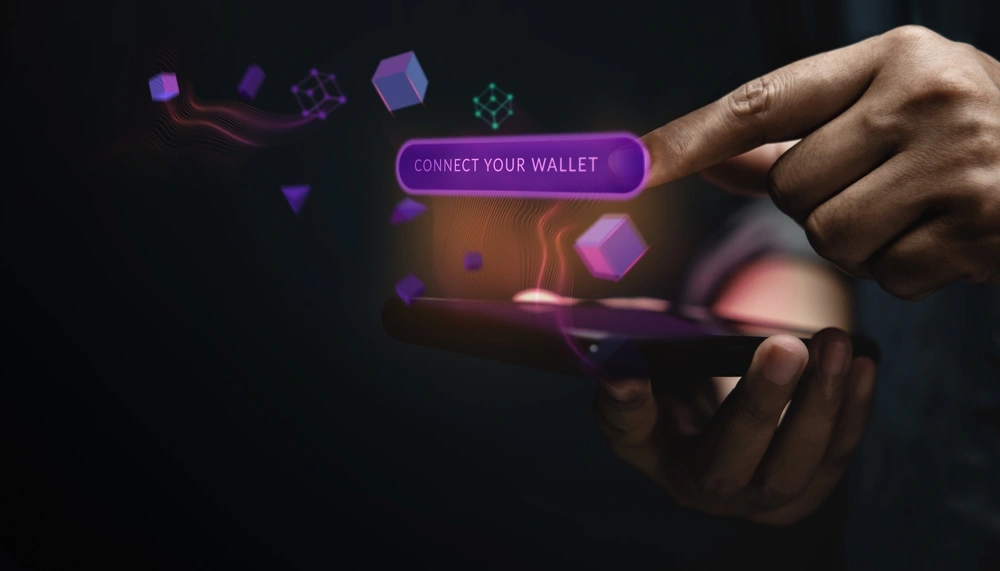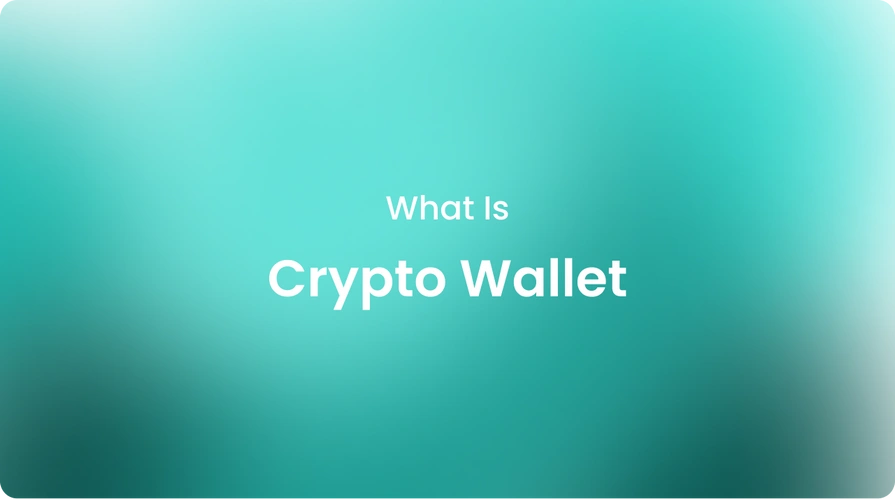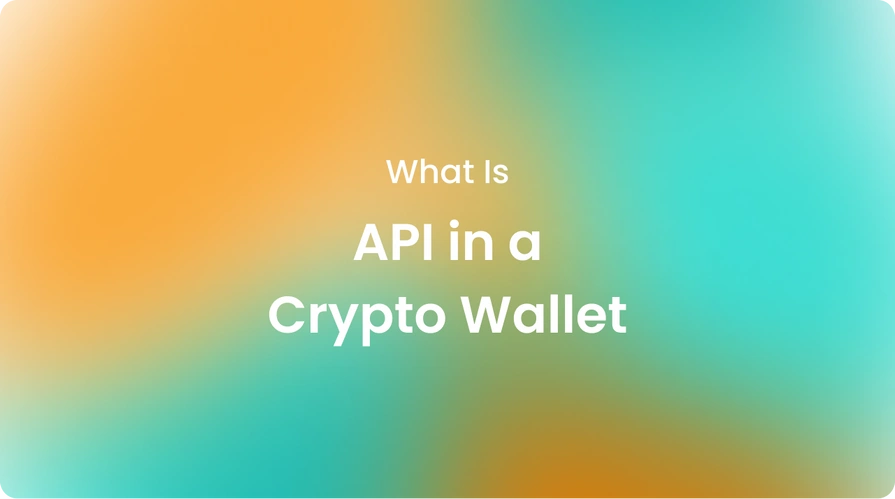|crypto, knowledgehub
What Are the Types of Crypto Wallets?
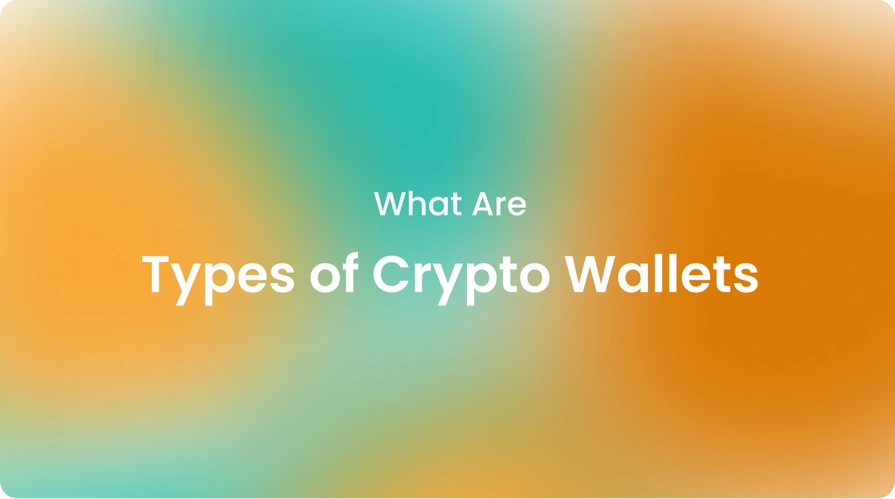
As cryptocurrencies continue to gain mainstream popularity, more types of crypto wallets emerge for securely storing digital assets. But with so many crypto wallet choices available, deciding which one meets your specific requirements can seem daunting.
Join us in this guide as we explore the different types of crypto wallets, helping you pick the safest and most suitable solution. Depending on their internet connection, crypto wallets can be categorized as either cold wallets or hot wallets, and each differs in different categories. Let’s explore!
What are cold wallets?
Cold wallets, such as hardware and paper wallets, have no internet connection, providing an extra layer of security by preventing online access to digital assets. Hardware and paper wallets fall into this category.
Hardware wallets
One of the most popular cold wallet options is a hardware wallet. Hardware wallets securely store private keys offline and enable receiving and sending coins when connected. Hardware wallets are versatile and ideal for long-term crypto holding.
Paper wallets
For a basic, non-tech approach, paper wallets provide the private key and public address printed on paper. If the key is properly stored, paper wallets offer offline protection for crypto coins, even though they are less user-friendly. Just be careful not to lose or damage the key!
What are the hot wallets?
Hot wallets provide ongoing internet access, allowing for faster spending, receiving, and exchanging of funds. However, if the device is compromised online, this convenience comes with slightly higher security risks.
Desktop wallets
Install desktop wallets on your computer to facilitate transactions from your own machine. Just back up the keystore regularly in case of crashes.
Mobile wallets
Representing the most user-friendly hot wallet option, trusted mobile apps allow on-the-go spending directly from a smartphone. Just use strong passwords and potentially biometric IDs for extra protection.
Web wallets
Web-based hot storage services provide accessible online accounts. However, consider using a dedicated device or hardware wallet for long-term savings due to web wallets' reliance on company security measures.
What are custodial vs. non-custodial wallets?
In addition, crypto wallets can be custodial or non-custodial based on who controls the private keys. Custodial wallets, like centralized exchanges, hold users' keys, requiring trust in a third party.
Non-custodial solutions give sole-key ownership for full autonomy, as with hardware and desktop wallets where you set the passphrase with decentralized exchanges. Their main difference is decentralization.
How do crypto wallets work?
All crypto wallets store the private and public keys needed to authorize transactions on the blockchain. The private key signs transactions, while the public key serves as the receiving address.
Desktop, hardware, and paper wallets let you manage these keys yourself, whereas custodial web and mobile options abstract this process.
The sender broadcasts a transaction to the network, signing it with their private key, while the receiver's public address ensures correct delivery. Wallets provide interfaces for initiating, confirming, and storing records of blockchain interactions.
Crypto wallets serve as the entrance point for participating in decentralized networks, whether through GUI clients on devices or purely non-custodial key management.
If you need more guidance about crypto wallets, you can check out “How to set up a cryptocurrency wallet?" “DeFi wallet," and “API in a crypto wallet." We have all the information that you need on the CBQ blog page. Make sure to check for daily updates!
How many crypto wallets are there globally?
With crypto's growing popularity, the number of digital wallet users has skyrocketed in recent years. According to Statista data, downloads of the top 21 crypto wallet apps reached over 2.2 million in December 2020 alone. The number of monthly active users worldwide is over 100 million today.
India represents a major emerging market, with one study finding crypto ownership among 9% of CoinDCX users in 2021. In contrast, about 30% of people in East Africa lack bank accounts, creating opportunities for financial inclusion through mobile cryptocurrency apps.
How do you pick a crypto wallet?
Now that the basics are clear, let's explore some key considerations when choosing your solution. When selecting the right crypto wallet for your specific needs, factors like security, ease of use, features, and cost all require careful consideration.
- Go non-custodial for full autonomy over keys if holding large amounts long-term. Cryptobunq offers secure hardware, desktop, and mobile wallets, allowing key control with custody and wallet services.
- Evaluate security provisions like hardware wallets' ability to sign transactions offline or mobile wallets' biometric access. For larger balances, hard wallets provide military-level protection.
- Consider usability. Do you need immediate spendability, or is set-up simplicity a priority? Custodial options generally offer the best user experience but lack independent key control.
- Review supported coins. Choose one with flexibility for your current and future assets.
- Check transaction costs and speeds for your intended use, whether transacting frequently or holding long-term funds without touching them.
- Explore additional features you may find valuable, like crypto-staking, lending, swap capabilities, or e-commerce payment processing through Cryptobunq.
- By conducting thorough research tailored to your specific needs, you can easily identify the most suitable wallet option. Consult reviews to verify a provider’s reputation for optimal safety and functionality.
What is the safest type of crypto wallet?
For the safest type of crypto wallet, experts agree hardware wallets reign supreme. Offline private key handling provides what's known as "cold storage," meaning funds remain beyond the reach of internet threats.
Some additional advantages of hardware wallets include:
- Very low risk even if the device is lost or stolen since assets are accessed by passphrase, not by possessing the physical device.
- Supports a wide range of currencies and blockchains from a single interface.
- Features like passphrases, PIN codes, and hardware encryption render private keys virtually impossible to access without authorization.
- Allows transactions to be signed solely on the device, despite an infected or compromised computer.
- Provides peace of mind by removing the "not your keys, not your coins" risk associated with custodial web/exchange wallets.
For ultimate safety, some experts also recommend "deep cold storage" approaches like engraving paper wallet private keys offline and storing them in a secure location, but this requires diligent record-keeping and risks loss or damage to the paper.
For most users, a reputable hardware wallet justifies its small upfront cost with the unrivaled protection of substantial crypto holdings. You can also use CBQ’s custody and wallet services to secure your crypto assets.
Cryptobunq is a one-stop-shop crypto service provider, from exchange APIs to batch payments. We offer expert solutions for individuals and businesses' crypto needs. If you want to see our contributions in a better light, you can take a look at our case studies!
The bottom line
As cryptocurrencies rapidly gain steam among both crypto traders and mainstream consumers, it becomes imperative to choose the right crypto wallet solution tailored to individual needs.
By understanding the different types of crypto wallets available, including hot and cold and custodial versus non-custodial, this guide helps navigate the options to select the most secure and suitable storage approach.
Ultimately, conducting thorough research based on personal requirements leads to choosing the optimal wallet. Cryptobunq is here for you along the way to help you secure your crypto assets in the most expert way. Contact us and easily integrate our secure crypto wallet solutions into your business!
